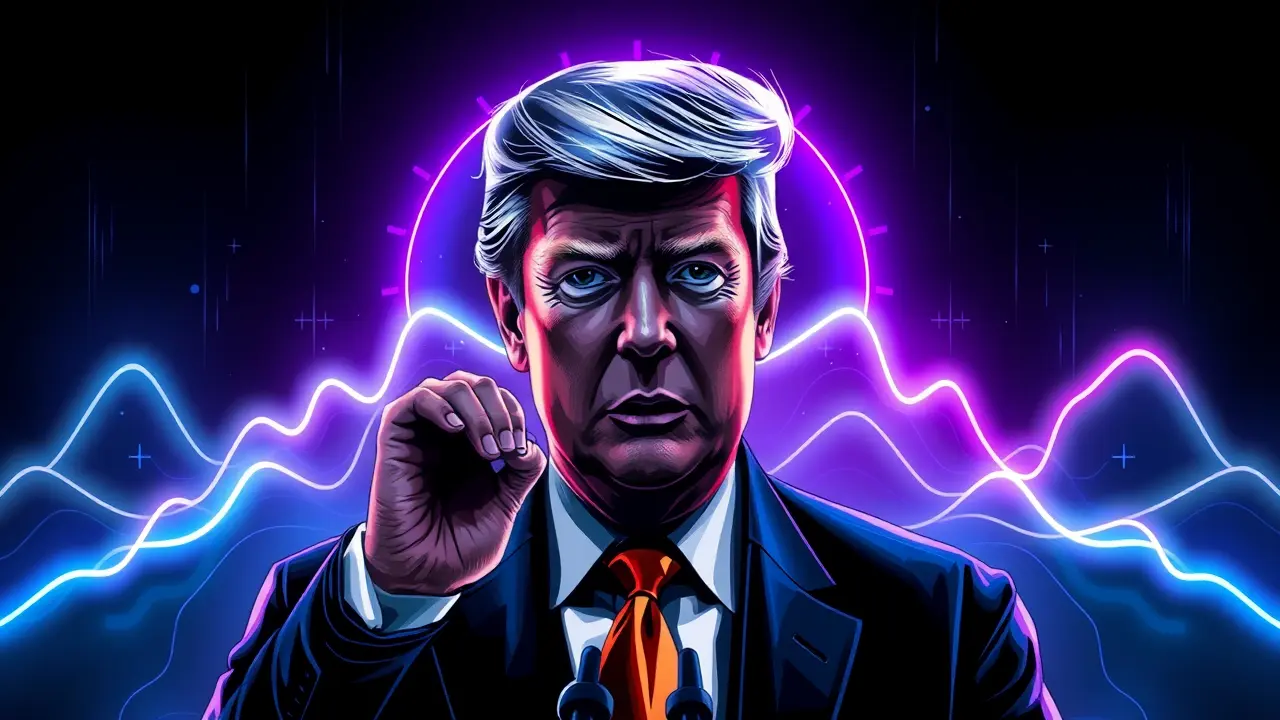Trump Warns US Will Not Aid Argentina If Milei Loses
In a stark geopolitical pronouncement that has sent ripples through diplomatic circles, former President Donald Trump has issued a blunt warning to Argentina, declaring that the United States will not be 'generous' should President Javier Milei's coalition suffer defeat in the pivotal elections later this month. This intervention, delivered with the unvarnished directness characteristic of Trump's political brand, is more than a mere campaign comment; it is a significant maneuver in the great game of international relations, echoing the kind of hard-nosed, transactional diplomacy that defined his previous administration.The statement places the United States, albeit through the voice of its likely Republican nominee, squarely in the internal political fray of a major South American nation, a move with profound implications for the hemisphere's balance of power. To understand the gravity of this, one must look to the historical precedent of US-Latin American relations, a complex tapestry woven with threads of the Monroe Doctrine, Cold War proxy conflicts, and economic coercion.Trump's warning is a modern iteration of this long-standing dynamic, stripping away the diplomatic niceties that often cloak such power plays. Milei, a self-proclaimed 'anarcho-capitalist' and fervent admirer of Trump, has positioned Argentina as a potential ally in a new ideological axis, one defined by a rejection of globalism and a embrace of radical free-market principles.His potential fall represents not just a domestic political shift but a strategic setback for those advocating this vision, potentially ceding ground to a Peronist restoration with closer ties to China and Russia. The consequences are multifaceted: a Milei defeat could recalibrate Argentina's economic alliances, impacting everything from IMF negotiations to its engagement with BRICS, while a victory, bolstered by this external endorsement, could deepen the nation's political polarization.This is not merely about aid packages or trade terms; it is about the very soul of a nation and the external forces seeking to shape its destiny. Analysts are now left to ponder the strategic calculus behind Trump's public gambit—is it a genuine attempt to sway Argentine voters, a signal to his domestic base about his foreign policy posture, or a deliberate provocation to the current Biden administration, which has maintained a more traditionally diplomatic, if watchful, stance toward Buenos Aires? The shadow of Winston Churchill's famed 'Iron Curtain' speech looms, not in its Cold War context, but in its demonstration of how a single, powerful rhetorical stroke can define an emerging global alignment.Trump's words, similarly, have drawn a line, creating a clear 'with us or against us' dichotomy in a region where ambiguity has long been the currency of statecraft. The coming vote in Argentina is thus transformed from a national election into an international litmus test, a referendum on a particular brand of populist conservatism and its viability on the world stage, with the economic future of a nation of 46 million people hanging in the balance.
Latest News
The charts are whispering what the true believers have felt in their bones for weeks—Dogecoin is carving out a bottom.
17 hours ago5 comments
The Institute for Fiscal Studies has thrown a stark warning onto Rachel Reeves's desk, urging the Chancellor to confront a potential £22 billion shortfall in
17 hours ago3 comments
Alright, let's break down this absolute heater of a performance from the Chicago Blackhawks, because if you missed this one, you missed a party.
18 hours ago5 comments
The ice was hot last night in the NHL, folks, serving up a slate of games that felt less like a regular season Tuesday and more like a playoff preview with a
18 hours ago3 comments
The XRP chart is painting a tantalizing picture for those with the stomach to withstand the relentless pressure from crypto's leviathans.
18 hours ago4 comments
It’s in the small shifts, the quiet recalibrations of a Thursday morning, where the most meaningful change often takes root.
18 hours ago4 comments
In a move that sent ripples of quiet confidence through the crypto ecosystem, blockchain intelligence firms tracked a monumental treasury allocation from
18 hours ago4 comments
In a move that would have drawn a nod of approval from historical figures like Churchill, who understood the delicate balance of power within democratic
18 hours ago2 comments
JA
Jamie Larson123k1 day ago
wow this is a lot to take in tbh, feels like we're just meddling in their business again
0
MA
Mark Reynolds123k1 day ago
trump just can't help getting involved in other countries' politics can he not sure this kind of talk actually helps anyone tbh
0
BR
Brenda Simmons123k1 day ago
i'm curious how this will actually work, feels like we've seen this movie before and it never ends well tbh
0
JA
Jamie Larson123k1 day ago
wow that's a major escalation tbh, trump just inserting himself directly into their election like that smh
0
JA
Jamie Larson123k1 day ago
wait what is even happening anymore this is like a geopolitical soap opera and i'm just here for the chaos tbh
0
LE
Leo Vance123k2 days ago
reading this at 3 am and it feels like a metaphor for the entire human condition or maybe i just need to go to sleep
0
